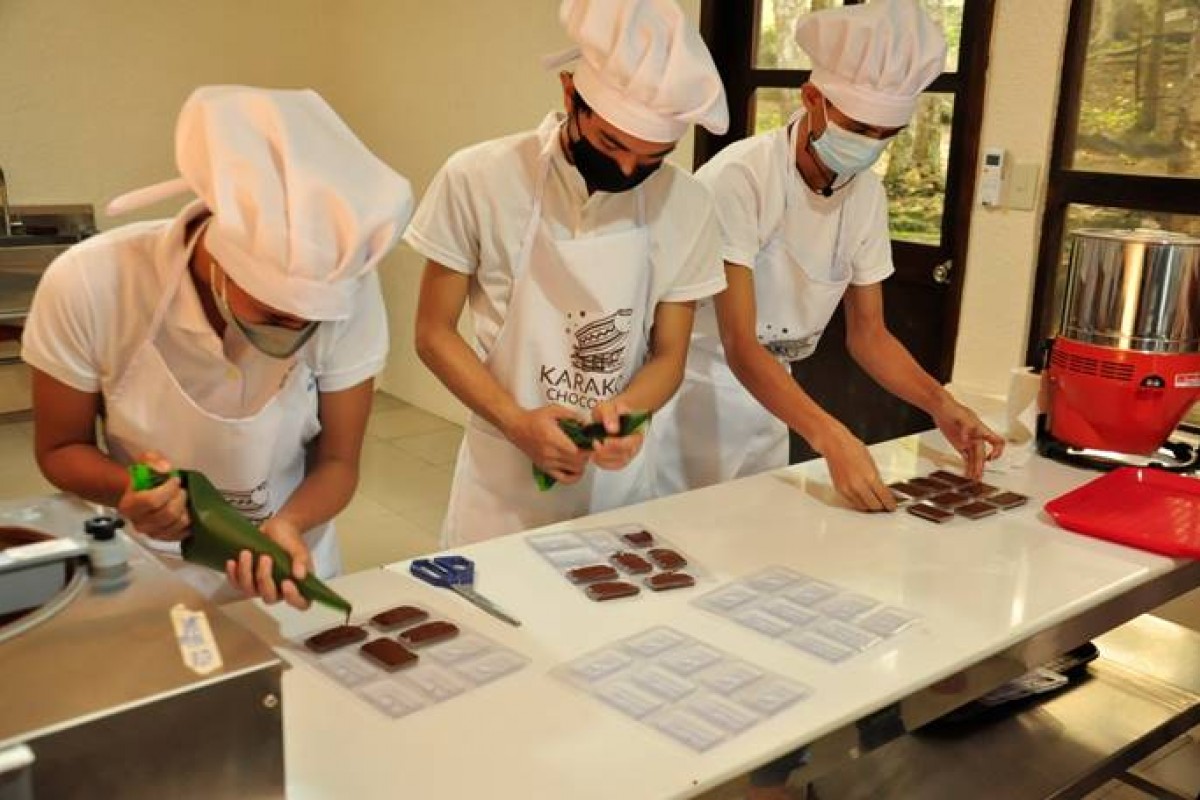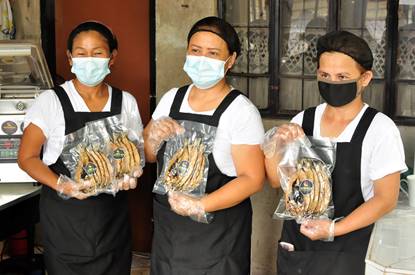
A new brand of chocolates would be selling from Bohol with beans from a barn in Hacienda Buenavista in Loboc town.
The more inspiring thing from that is not the more than 30 hectares of cacao plantation in the hills of Buenavista, nor the livelihood that is made available to the farm workers whose incomes could potentially increase in the agri-business profit, but in the men and women who have an unflinching focus in processing the cacao beans into world-class chocolate bars.
Karakoa Chocolate, from the chocolate factory manned by the differently-abled high school students of Bohol Deaf Academy (BDA), is a dream which International Deaf Education Association (IDEA) Philippine founder and George Dennis Drake shared to the Department of Science and Technology (DOST), said Bohol Provincial Science and Technology Center (PSTC) Director Vina Antopina.
Partnering with BDA to help the academy for the differently-abled students in their technical vocational strands, DOST learned that aside from empowering his deaf students, Drake also wants to capacitate the children to be independently striving for a brighter future.
Seeing the factory as a venue to train and employ the deaf community of Bohol, Drake talked with the DOST about it.
Herself a chocolatier and an expert in chocolate processing, Antopina saw the inherent focus and attention to detail exhibited by the deaf learners, something that would be extremely useful in chocolate making. Unfortunately, Drake died amid their preparations for the realization of that dream, but that did not dampen the children’s spirits. His death pushed DOST and the school officials to advance the Drake legacy.
In 2021, with DOST’s desire to bring the Drake legacy to fruition, the department extended a grant of a full package of a chocolate processing training and equipment to BDA.
They were quick to learn, their focus and attention to detail is incomparable, said Antopina, who personally handled the training aided by teachers communicating by sign language.

On the second day of training, they were on their own, running the process and operating the equipment, she added. Using cacao beans solely from Hacienda Buenavista in the hills of Loboc, the beginnings of going into the whole value chain processes of the chocolate industry took its initial form.
DOST said even if the BDA now knows and can produce chocolate from the beans, there is a standard for chocolates that the farmers in the estate has to keep to maintain the highest quality of cacao beans that could deliver the finest chocolates. That was when Hacienda Buenavista sealed a deal with BDA for the farm’s quality beans to supply the needs of BDA’s chocolate factory.
Adopting karakoa, the giant double outrigger boats which people in the Pacific islands used to bring warriors to battle and goods to trade, and with Drake’s infatuation with paddle boats, BDA decided to name their brand and company name, said BDA Administrator Clessa Magdales.
Just like the karakoa, Karakoa Chocolates is a vessel built to empower and transport future generations of the deaf community of Bohol through their vocational training and jobs creation to a brighter and more equitable future they can navigate on, Magdales said. "In all of these, we have Drake and the DOT partnership, that perfect match made in heaven for this sailing success," she added. (RAHC/PIA7 Bohol)




